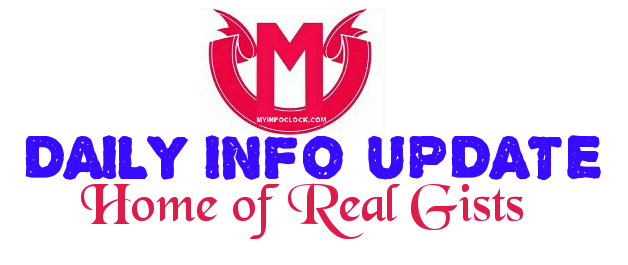The Minister for Humanitarian Affairs, Disaster Management and Social Development Development, Sadiya Umar Farouk, in an inaugural meeting of the United Nations COVID-19 Basket Fund meeting held in Abuja, disclosed that the Federal Government has set plans to unveil low interest loans to additional 500,000 traders asides MarketMoni and TraderMoni.
Hajiya Sadiya Umar Farouk noted that her Ministry has been relentless in relieving the plight of Nigerians especially during this era of Coronavirus Pandemic, by unleashing strategic plans to cushion the effects. Among these are the N20,000 Conditional Cash Transfer to 1,028,416 poor and vulnerable households in 32 states; Take Away Food ration worth N4,200 to 3.1 million households; distribution of 129 trucks of rice and condiments to 35 states and the FCT as well as the deployment of 14,910 metric tons of grains to 4 states in the frontline of the epidemic whose livelihoods will be affected by the lockdown.
The Minister had earlier reiterated plans to restructure the Social investment program which includes the popular N-power program.
In her speech, she disclosed that the restructured program features the N-Power plus which bases on skills acquisition with behavioural change and communication including leadership and peacebuilding skills for our youth, the creation of a Social Protection Council to provide strategic leadership aligned with the coordinating mandate of the Ministry.
The Minister thanked and pleaded with the EU, World Bank, UNICEF, WFP, ILO, DFID and other partners to join hands in support to enable the Ministry institutionalise these structures and framework.
From the onset of the COVID-19 pandemic, the Federal government has adopted a whole of government approach to confronting what has now become both a health emergency and humanitarian crisis.
My ministry realising that the impact of this COVID-19 pandemic goes well beyond health is looking at addressing the social dimension to the crisis including food insecurity, loss of income and economic breakdown which the poor and vulnerable are worst hit.
We therefore quickly constituted a Technical Working Group compromising of Agencies and programmes under the Ministry including NEMA, NAPTIP, SDGs, NASSP and NSIP to coordinate social interventions for the poor and vulnerable to pull their resources together, rapidly scale existing programmes to reach the poor and vulnerable quickly with relief.
These interventions are directed to complement the efforts of the PTF and Economic Sustainability Committee with a focus on IDPs, Persons living with disabilities; the elderly; petty traders and hawkers, labourers and blue-collar workers, homeless, and low-skilled traders.
In the short term, the interventions are aimed at mitigating the potential adverse social and economic impact, through the provision of shock responsive social safety nets to manage the emerging humanitarian crisis as a result of the multifaceted consequences of the pandemic.
At the onset of the COVID-19 pandemic, the National Social Register (NSR) contained data of over 2.6 million poor and vulnerable households (with over 11 million individuals) across 34 States and the FCT.
With the accelerated registration and rapid expansion, the register has grown to 3.2 million households (equivalent to 13.8 million individuals) across 36 State and the FCT. Data collection is still ongoing, and we are also developing the rapid response register that will target the urban poor.
From the existing Cash Transfer Programme, the President directed the payment of 1,028,416 poor and vulnerable households in 32 states an advance payment of their monthly stipend in addition to the current payment circle of 20,000 naira each as lump sum.
On In-kind/Food distribution, the Ministry has distributed 129 trucks of rice and condiments to 35 states and the FCT from the Nigerian Customs Service. Till date, NEMA, the Ministry’s lead agency in disaster response has deployed 14,910 metric tons of grains to 4 states in the frontline of the epidemic whose livelihoods will be affected by the lockdown.
Similarly, the Home-Grown School Feeding Programme (HGSFP), will provide Take Home Food Rations to 3.1 million households of school children from poor homes at designated centres, using existing structure across the States and LGAs and sensitisation commence today for the FCT.
Also, the Ministry in collaboration with the World Food Programme convened a Zero Hunger roundtable with over 30 high-level participants of the private sector to map a coherent and strategic response for the hunger pandemic occasioned by COVID-19 to Covid-19 in Nigeria.
The relief component of the social interventions included a moratorium of loan obligations. For instance, the TraderMoni is a N10,000 loan to traders that depend on daily income, while the N50,000 MarketMoni is for providers of essential services, including shoemakers and vulcanisers, and an additional loan to 500,000 traders.
The Ministry led Humanitarian Sub-committee has been engaging with the existing State coordination mechanisms to ensure a specific COVID-19 outbreak readiness and response plan for each camp including UN OCHA, IOM and Borno State.
Our efforts show clearly why the Federal Government created our Ministry, but also highlights the lack of Shock Responsive Social Safety Nets for the country broadly to address vulnerability as a result of shocks like this.
These are just a few initiatives that have been rolled out, aside from other emerging transitional and recovery opportunities, to which the Ministry is providing strategic leadership including the restructured social investment program which provides linkages which optimises efficiency and sustainability.
The restructured program features the N-Power plus premised on skills acquisition with behavioural change communication including leadership and peacebuilding skills for our youth. The restructured social investment program critically looks at the demographic trends in an attempt to harness the demographic dividends for the country.
Our priority is to develop a strong social protection program and coordination which is the key instrument to support the most vulnerable population, by providing the requisite leadership, to this end, the Ministry will be inaugurating the Social Protection Council to provide strategic leadership aligned with the coordinating mandate of the Ministry and I will continue to count on the support of EU, World Bank, UNICEF, WFP, ILO and DFID and other partners to institutionalise these structures and framework.
We are thankful to the leadership of the World Bank for their support in building the National Social Register and the conditional cash transfer under the NASSP which can be quickly scaled up to reach even poorer and vulnerable with cash transfer at this time and beyond.
I would also like to appreciate the WFP, UNICEF, World Bank, DFID, EU and ILO for the leadership and commitment demonstrated through the Social Protection Donor Group.
The Ministry is working with the EU and ILO to respond to the recent EU-ILO call for a proposal to scale up the social protection system in response to the crisis, which will be complemented by another proposal for the basket fund.
As we navigate this unchartered territory and adapt to our new reality, these interventions will strengthen existing structures, capture lessons learnt from managing this crisis for a post-pandemic humanitarian strategy and build resilient structures.
We count on your support to provide relief in the immediate to millions of the country’s poor and vulnerable, a clear economic recovery program, unified data and a stronger social protection system to build Nigeria’s resilience to mitigate future emergencies of this nature,” she said.




0 Comments
Kindly let your voice be heard through the comment section below